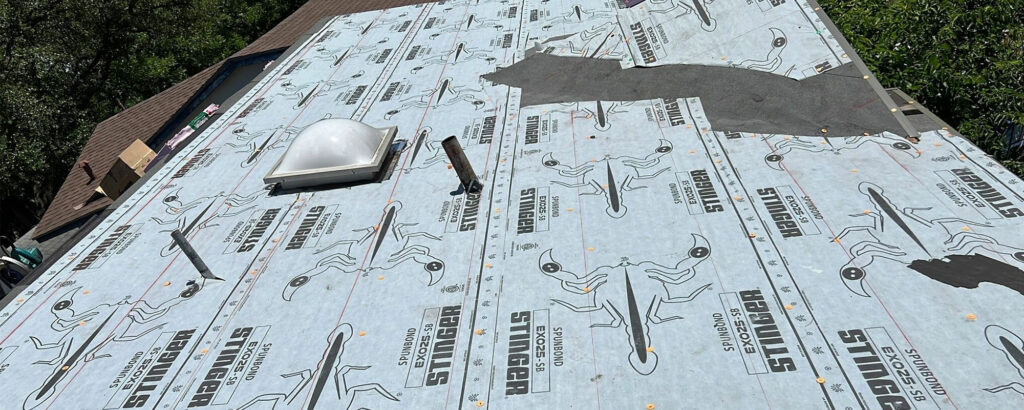The construction and maintenance costs of industrial buildings are often high, so owners and operators try to keep those costs as low as possible. In general, the type of roofing material used in an industrial building largely depends on its location and the local climate. Industrial buildings are commonly divided into manufacturing plants, warehouses, and other industrial structures such as power plants and gas stations. Depending on the structure’s intended use, there are different considerations for choosing a roofing material. For example, a high-end manufacturing plant may require a specific aesthetic appeal or exceptional durability; a warehouse may need something that is cost-effective but also waterproof. The following details overview some common materials used for commercial and industrial roofs:
Proper roofing material selection
When choosing roofing materials for a commercial or industrial roof, keep in mind what the roof’s intended use is. For example, if a roof is going to be exposed to weather regularly, it is important to use a material that can withstand sun and weather damage. Also, different roofing materials may be more or less appropriate for specific types of buildings. For example, asphalt shingles are often used for residential buildings, while tiles are more commonly used for commercial buildings. Although the initial cost of some roofing materials, such as copper roofing, may be higher, they are often more durable and may have lower long-term maintenance costs. For example, certain roofing materials, such as tile and slate, are known to last for decades or even centuries when properly maintained. On the other hand, other roofing materials, such as asphalt shingles, are known to have a shorter lifespan. Thus, before choosing a roofing material, it is important to consider how long you expect the roof to last and its maintenance requirements.
Metal Roofing
Metal roofing is used to cover industrial buildings that have a high risk of weather-related damage. It is often used for agricultural buildings, such as silos, livestock facilities, and grain storage. Additionally, metal roofing is commonly used for warehouses, storage buildings, and manufacturing plants. There are multiple types of metal roofing. Galvanized steel, for example, is commonly used for commercial roofs. Typically, it is not used for residential roofs because it can be too heavy for residential buildings. High-end commercial and industrial buildings may use stainless steel roofing, which is more expensive but extremely durable and resistant to corrosion. While metal roofing is commonly used for industrial buildings in some areas, it is rarely used for commercial buildings.
Tiles and clay roofing
Tiles, like clay roofing, are often used for commercial buildings, particularly those in moderate or mild climates. They are most often used for roofs that are relatively flat, such as the roofs of churches, government buildings, and office buildings. There are several types of tile roofing. For example, terra-cotta tiles are often used for commercial buildings because they are suited to a wide range of climates. They are a common material for roofs of restaurants and hotels, as they have a distinct aesthetic appeal. Ceramic tiles are another common type of tile roofing. Like terra-cotta tiles, they are suited to a wide range of climates. Ceramic tiles are usually white or colored, although they are also sometimes made from coloured clay.
PVC Roofing
PVC roofing is a type of synthetic roofing material. It is often used as a lower-cost alternative to conventional roofing materials, such as asphalt shingles and tiles. PVC roofing is often used for commercial buildings in moderate or mild climates, as well as for industrial buildings for areas with high water tables or other conditions that may cause a metallic roof to corrode.
Foam Roofing
Foam roofing is a relatively new type of roofing material. It is often made from recycled materials, such as polystyrene and polyurethane. Because foam roofing is lighter than traditional roofing materials, it is commonly used for low-slope commercial roofs, such as those of restaurants or convenience stores.
Conclusion
Choosing the right roofing material for a commercial or industrial roof can be challenging. To make the best decision, it is important to consider the roof’s intended use, the local climate, the cost of various roofing materials, and their maintenance requirements. While some roofing materials, such as tile and clay, can last for decades or more when properly maintained, others, like asphalt shingles, only last for a few years. Thus, it is important to choose a roofing material based on how long it is expected to last and its maintenance requirements.
